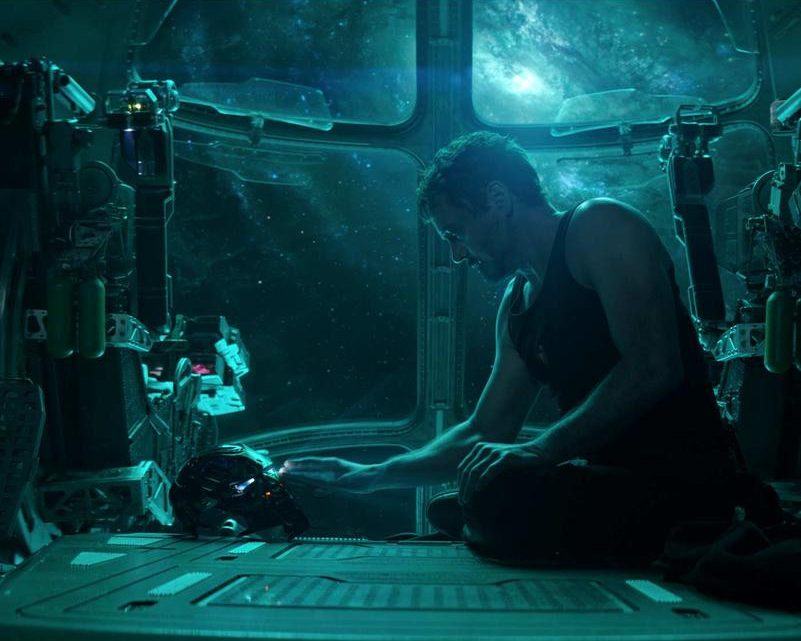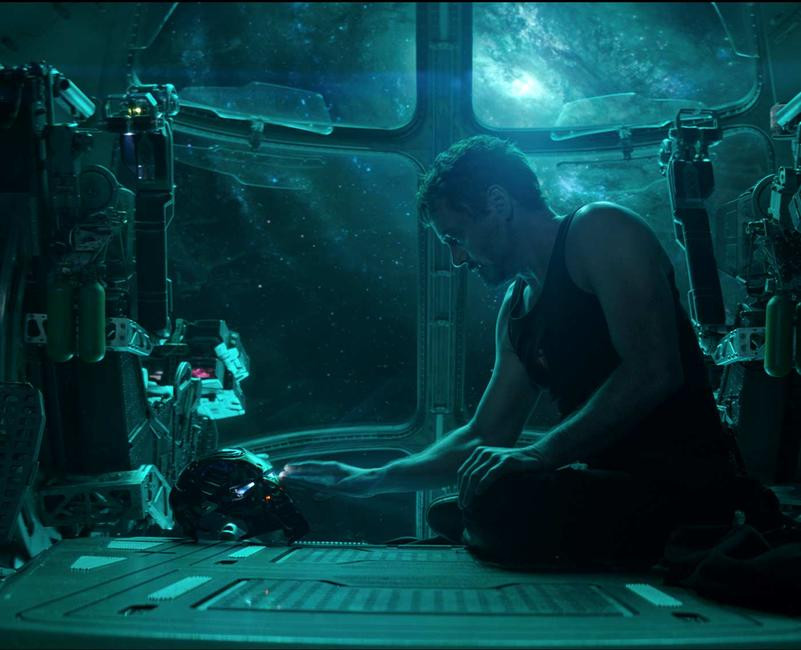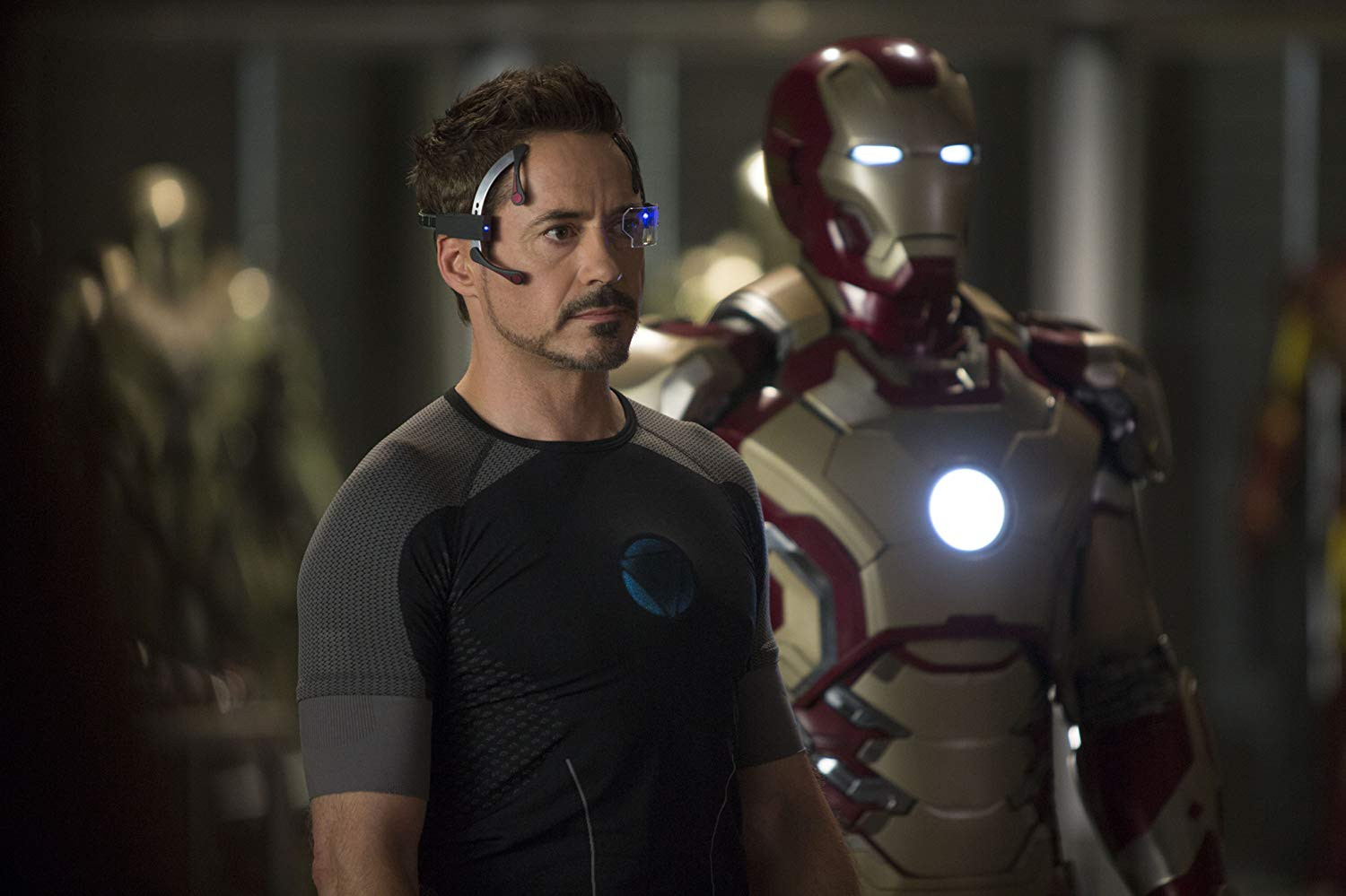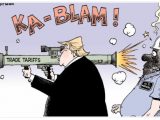
After ‘Avengers: Endgame,’ the MCU Has a Chance to Get Riskier
May 10, 2019Postscript is Cameron Kunzelman's weekly column about endings, apocalypses, deaths, bosses, and all sorts of other finalities.
This piece is chock full of spoilers for Avengers: Endgame.
Somewhere in the back half of Avengers: Infinity War, the Sorcerer Supreme Dr. Strange looks to a beaten and haggard Iron Man and solemnly intones the words “we’re in the endgame now.” He’s just handed over the Time Stone to arch-villain Thanos, meaning that the big bad is now most of the way toward obtaining all six Infinity Stones and extinguishing half of the life in the universe. Later, the purple Titan plonks the final stone in the glove and snaps his fingers to a tune that accomplishes his goal. Half of our heroes, including some headliners like Spider-Man and Black Panther, disintegrate into dust.
Avengers: Endgame has the tough job of reversing that apocalyptic event while also ending this era of Marvel films. It has to provide closure while also showing a path forward into the next X number of years of Marvel content. I feel certain that I am going to have to live with these characters with the rest of my life whether I want to or not, and in its finale Endgame uses a single, important death as fuel to launch us all into the next “phase” of the Marvel cinematic universe: they kill Iron Man.
Played by Robert Downey Jr. since 2008, Tony Stark aka Iron Man, is one of the core members of The Avengers alongside Captain America, Thor, Black Widow, Hawkeye, and the Hulk. He’s also one of the smartest people on the planet, and Downey Jr. has used that as an opportunity to play him as a cocky, rude jackass who always just happens to be right. He’s impolite, but he’s charming; he’s funny, but he’s deadly serious; everything is just a game, but the threats that he’s up against could destroy the planet.
The Iron Man character is what the entirety of the Marvel film franchise is built on in a literal way. Iron Man was the launch of phase one of the Marvel Cinematic Universe, and Tony Stark began to pop up alongside Nick Fury in the post-credits sequences of the vaguely related films in order to piece together a team to protect the Earth from some kind of extra-planetary threat (that we eventually came to know as Thanos). Iron Man and Tony Stark became the recognizable face that connected these different films, a kind of conceptual personality glue that gave it all some coherence and consistency in the run-up to 2012’s The Avengers.
But the Marvel Cinematic Universe also built off of Tony Stark in a metaphorical way because the qualities of both that character and the Iron Man film are what ended up becoming the building blocks of the Marvel style of filmmaking. You get plots with clear emotional stakes, big action set-pieces, and lots of jokes peppered in between those things. I’ve written before about how much I don’t enjoy how often the Marvel films go to the humor well (and Endgame has some pretty bewilderingly bad jokes, including the repeated fat jokes at Thor’s expense and Rocket Raccoon’s uncharacteristic duds), but it’s undeniable that these are qualities that work for the vast majority of the audience.
It is bizarre to listen to people laugh through the adventures of people living in the aftermath of the destruction of half of the life in the universe, but that’s the world Tony Stark gave us.
The decision to kill him off at the end of this major milestone for Marvel makes sense. After all, if you tilt your head the right way, you can see how Tony Stark and Thanos parallel each other across this past decade of films. They each have a very specific goal in mind: Thanos wants to get the Infinity Stones and wipe out life. Tony Stark wants to stop that. They are both willing to do anything in their power to make it happen. They both have gathered up a cohort of lackeys to make that goal achievable, and those teams end up being crucial to accomplishing that goal.

Yes, I said “lackeys.” We might pause at considering The Avengers and the rest of the heroes of the Marvel universe as pawns whose existence revolves around the success or failure of Tony Stark. Obviously Iron Man isn’t even the best superhero in that world (that would be Bucky Barnes). But the plot that stretches across Infinity War and Endgame warps the diverse people of the Marvel Cinematic Universe into an ensemble cast that, at the level of plot and politics, ends up existing to support Iron Man’s agenda.
Dr. Strange looks into the future in the back half of Avengers: Infinity War and determines that there is only one possible timeline among the millions of them in which the heroes defeat Thanos. As his decision at the end of that film and his finger at the end of Endgame suggest, that single timeline of victory is the one in which everyone comes together to support Iron Man. Black Panther, Spider-Man, Valkyrie, and several other characters run, jump, and punch their way across a battlefield in a game of keep-away with Thanos to prevent him from regaining access to the Infinity Stones. The villain does get the glove, though, and in a moment of quick thinking Iron Man grapples with Thanos, grabs the stones while leaving the gauntlet, and assembles his own Infinity Gauntlet out of the nanites that his Iron Man suit is made from. He then “snaps” Thanos and his army out of existence, signing his own death warrant at the same time. As Bruce Banner explained earlier in the film, using the stones would kill a mere human.
The role that everyone else takes at the end of the film, at the level of pure plot, is as a device to get the Infinity Stones from one part of a battlefield into the hands of Tony Stark. He’s the alpha and omega of this first ten years of the Marvel films. Just like an iron suit, the other characters are here merely to support a very smart man who will, in the last instance, heroically sacrifice himself for the good of mankind.

If Iron Man begins and ends this part of the Marvel Cinematic Experience, then all of the problems in the intervening decade around Iron Man are rendered null and void. It was Tony Stark, after all, who wanted to build a suit of armor around the world. His failure there led him to support the registration of, and crackdown on, all of the superheroes on the planet in Civil War. In the opening of Endgame, after Captain Marvel rescues him from starvation in space, Stark doubles down on the core logic of that film, and draws a connection between the unwillingness for everyone to listen to him and the reality that Earth’s Mightiest Heroes failed to stop Thanos from killing half of the planet. In Stark’s opinion, which is never challenged in this film up through his heroic death, the reason that Thanos won was because Captain America and his posse wouldn’t get in line. In a moment of clear emotional pain, Stark mocks Captain America from 2015’s Age of Ultron by repeating his prophetic claim. They lost, and they did it together.
As I watched Endgame, I couldn’t help but feel like the underlying logic behind much of the films is a basic fact: Tony Stark Was Right. The smartest man in the world is the only reason these heroes have a chance in hell of succeeding, and the entirety of the plot of Endgame revolves around a man whose entire personality is the phrase “I told you so” being able to say, across the course of three hours, “I told you so.”
Iron Man’s death plays as pure tragedy. This figure who many of us have followed for ten years heroically expends his life force to use the Infinity Gauntlet to “snap” Thanos and his invading army out of existence. What could have been a quip (“I am Iron Man”) becomes a triumphant call that avoids the siren call of a laugh-line. He snaps, we watch the invading army turn to dust, and his pseudo-son Spider-Man and his wife Pepper Potts speak to him as he dies.
The final argument of the film, the thing that made everyone in the theater I was in cry, is that Tony Stark was a hero. Iron Man was right all along, and it took someone with his commitment to the planet Earth to sacrifice himself for the good of the many.
But I think it’s impossible to say that without contending with the other thing that Endgame implies with Tony Stark’s heroism. Crucially, Stark never rebukes his past self. He doesn’t apologize to Captain America for the persecution of superheroes or his desire to police the globe to make it safer. In the end, he simply picks up the same annihilating weapon that Thanos used against humanity and wields it back against him. The Infinity Gauntlet literally warps space and time to do whatever the wielder wants, and the best thing the smartest man could come up with is the total extinction of an invading force. As The Comedian once said, he could have turned the gun to steam. But instead the most brilliant Avenger could only meet total destruction with total destruction. The most complicated thing this massive media enterprise could come up with is the first part of a lesson: an eye for an eye. There’s nothing else to learn.
I don’t know that I think that’s a storytelling failure, but I do think it shows a distinct lack of imagination when it comes to the crafting of the Marvel Cinematic Smorgasbord. The fate of the world rests on Tony Stark’s shoulders, the cast of characters suddenly becomes a supporting one, and Captain America, the moral compass for freedom and compassion and the difference between right and wrong, doesn’t even have the chance to pipe up about what might have been right choice. The debate that was Civil War is resolved. Anything an Earthling does to save this planet is legitimate. Tony Stark Was Right.
The ending of Endgame and this era of the Marvel Cinematic Universe with Tony Stark is an opportunity to reconfigure the basic tenets of what these movies are and what this universe is. Without Iron Man as a fundamental structuring character, this is a chance for the Marvel films to take a more varied approach to filmmaking. Maybe there can be fewer jokes. Maybe there can be a more serious discussion about what a superhero should and should not be now that the Hulk is verifiably the smartest person in the room. Maybe there can be a longform discussion of whether Iron Man is the kind of hero that people in this universe should want to aspire to: rich, rude, and able to run overall resistance in his path without a thought.
After a decade of having the same conversations with the same characters who, on a basic level, have not changed characterization or opinion in all that time, maybe this is the opportunity to imagine a Marvel Cinematic Universe that isn’t patterned on Iron Man or Iron Man.


